ACLS Bradycardia Algorithm
An ACLS Bradycardia algorithm helps you learn the guiding interventions for emergency slow heart rates
ACLS (Advanced Cardiovascular Life Support) algorithms serve as comprehensive frameworks in emergency medicine. They provide clear and well-structured guidance in managing a range of cardiac emergencies. These include critical conditions like cardiac arrest, acute coronary syndromes, and other life-threatening cardiac disorders.
The ACLS algorithms form a part of advanced life support courses and so they are indispensable resources for healthcare professionals engaged in cardiac emergency management. Physicians, nurses, paramedics, and emergency responders benefit from ACLS training too, as it equips them with the requisite knowledge. It makes them proficient in adeptly navigating and managing these critically complex clinical scenarios.

Enroll in our PALS online certification course today and take advantage of our competitive pricing.
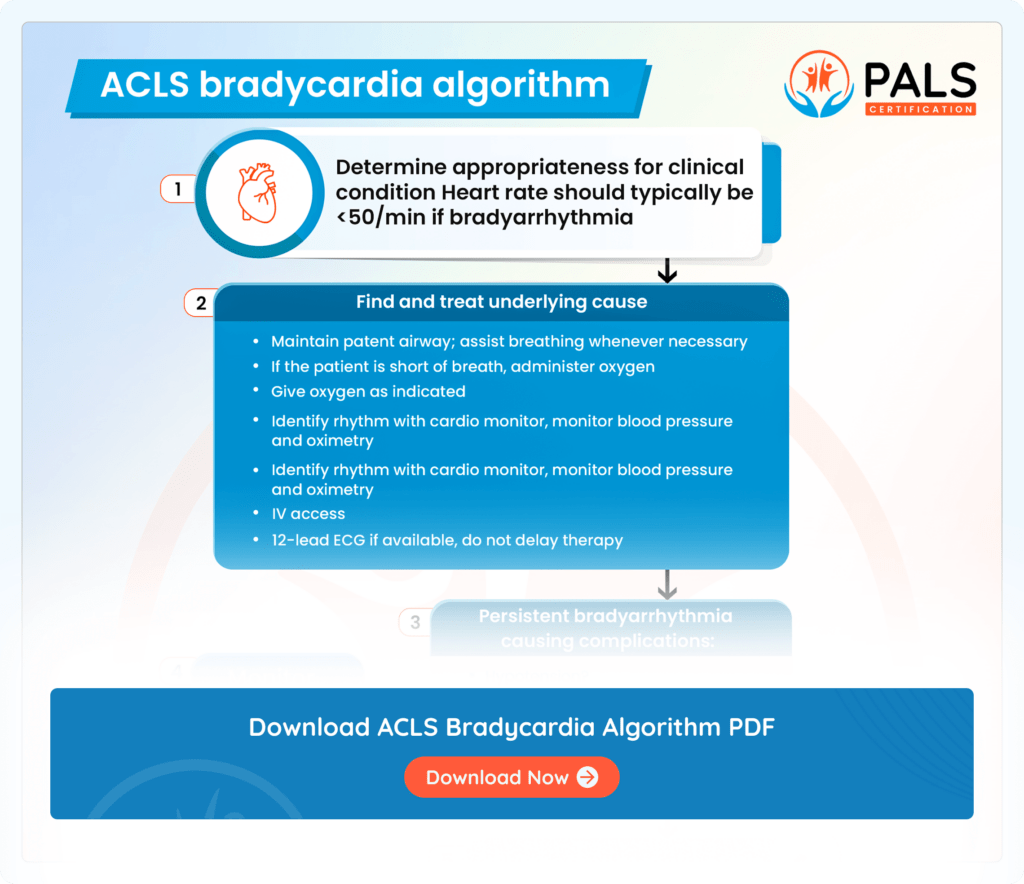
An ACLS Bradycardia algorithm helps you learn the guiding interventions for emergency slow heart rates
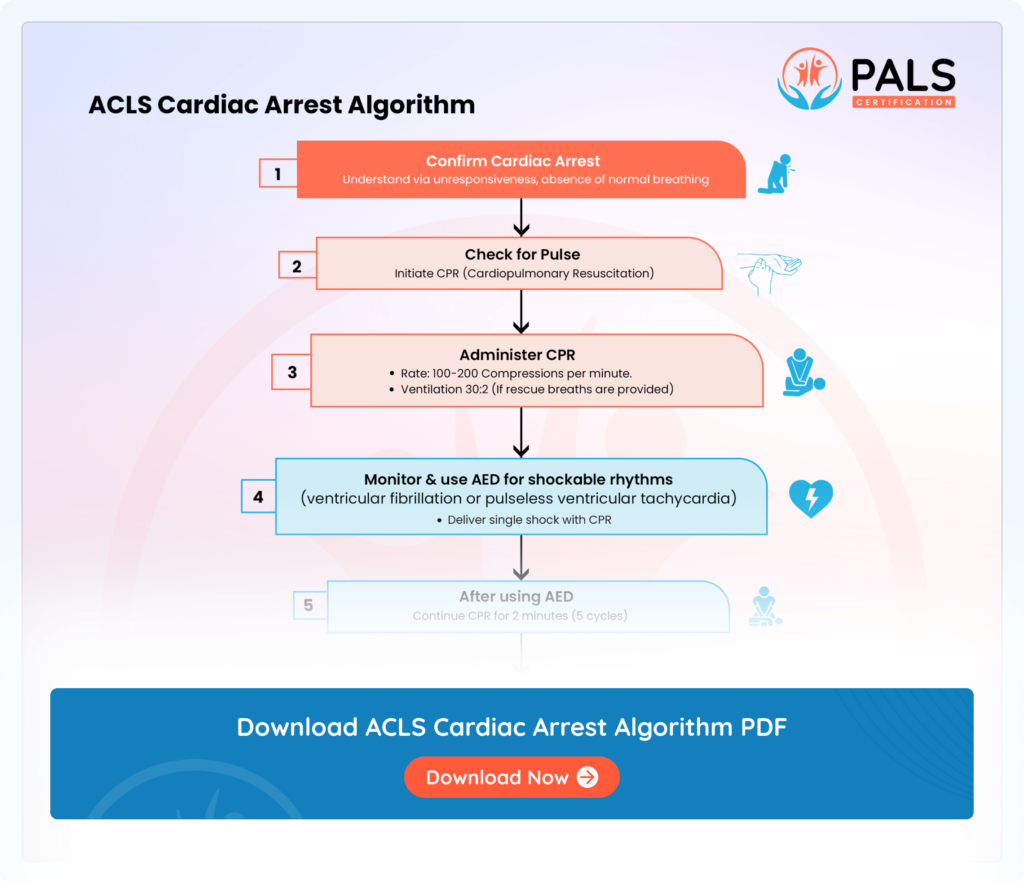
The ACLS cardiac arrest algorithm directs resuscitation efforts, outlining steps like patient assessment, CPR initiation, defibrillation if needed, medication administration, reversible cause evaluation, and advanced interventions.
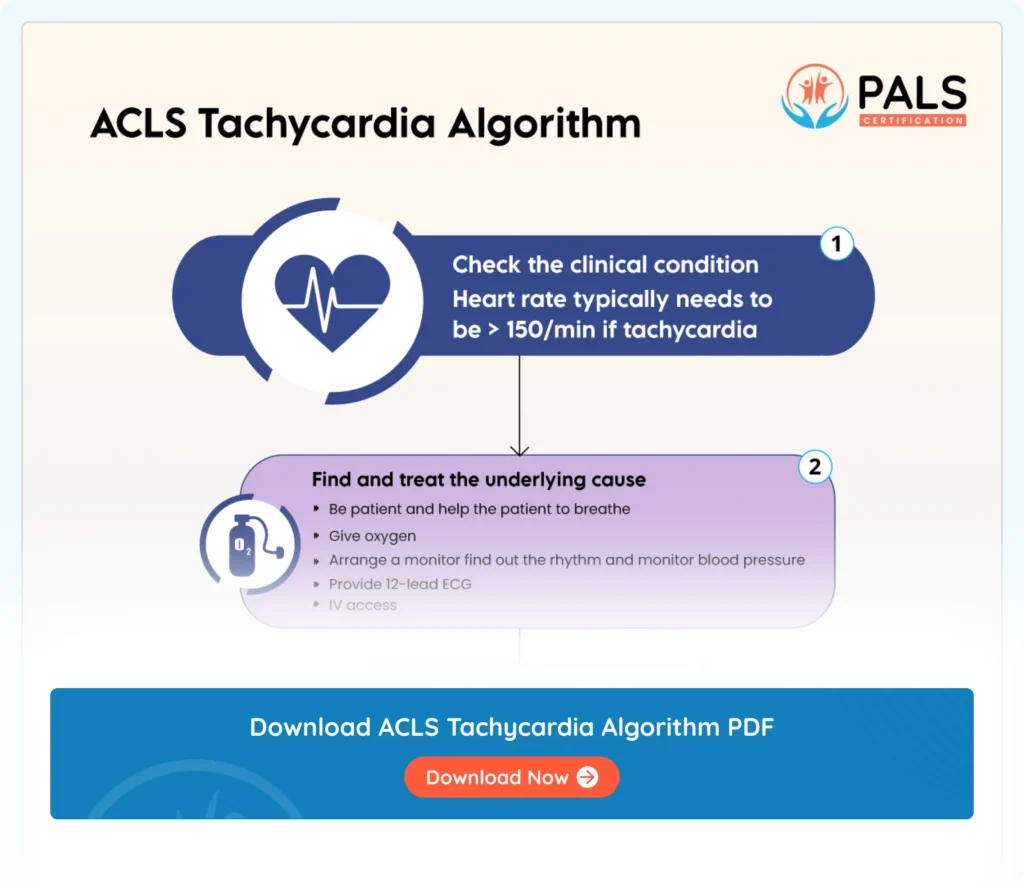
ACLS tachycardia algorithm helps manage elevated heart rates through systematic interventions for optimal patient outcomes
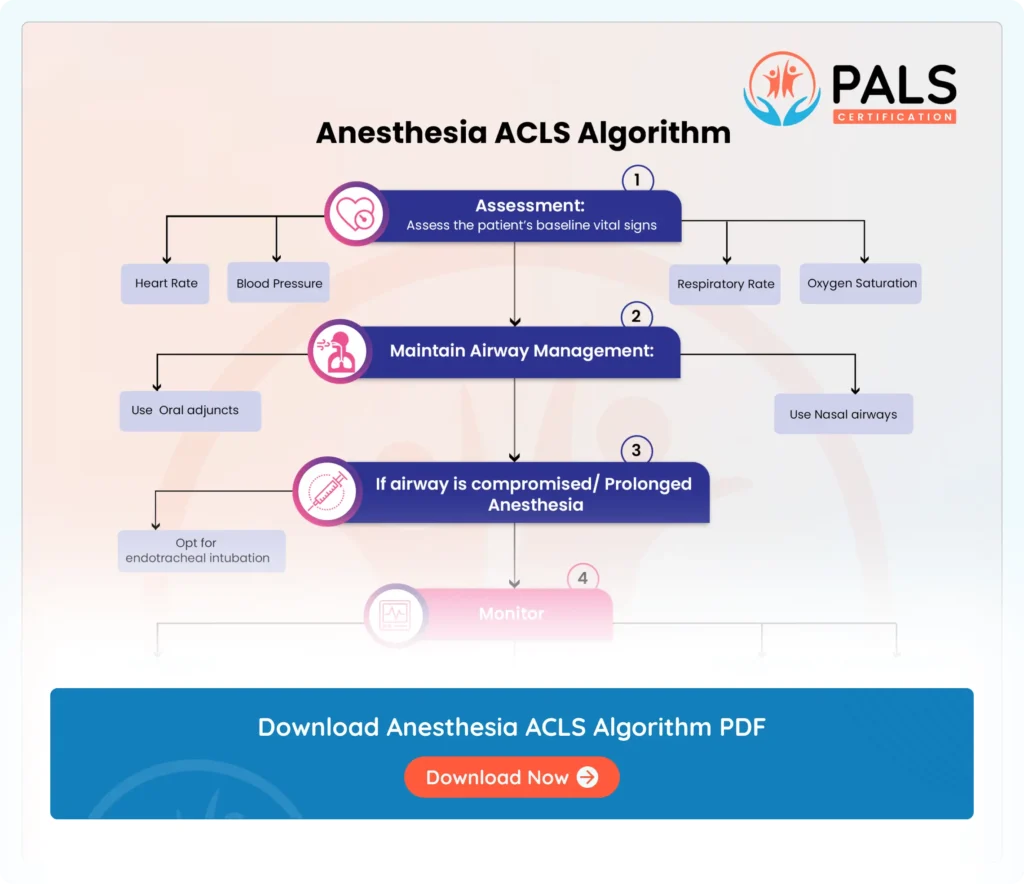
Know how to assess vital signs, secure airway and initiate CPR when needed. Administer ACLS drugs, address reversible causes and adapt management to patient's condition for anesthesia emergencies.
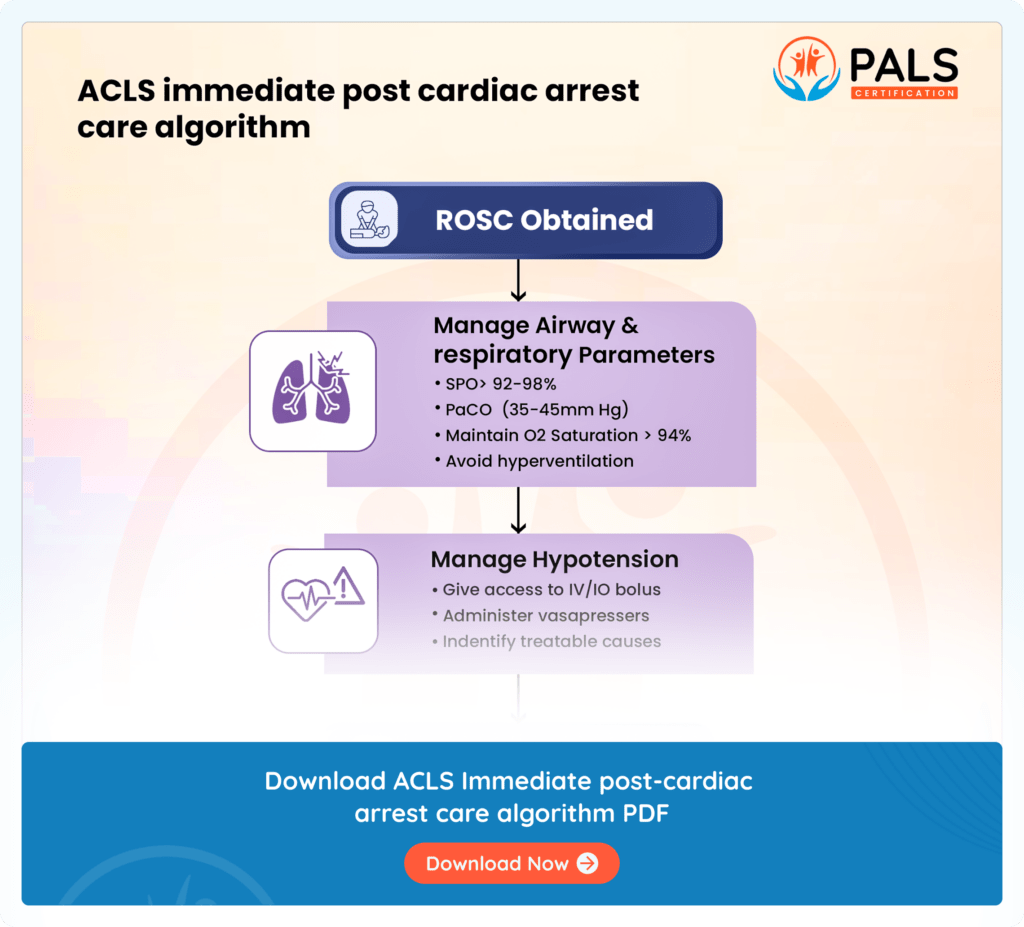
The ACLS Post Cardiac Arrest algorithm directs essential interventions for patients following resuscitation from cardiac arrest.
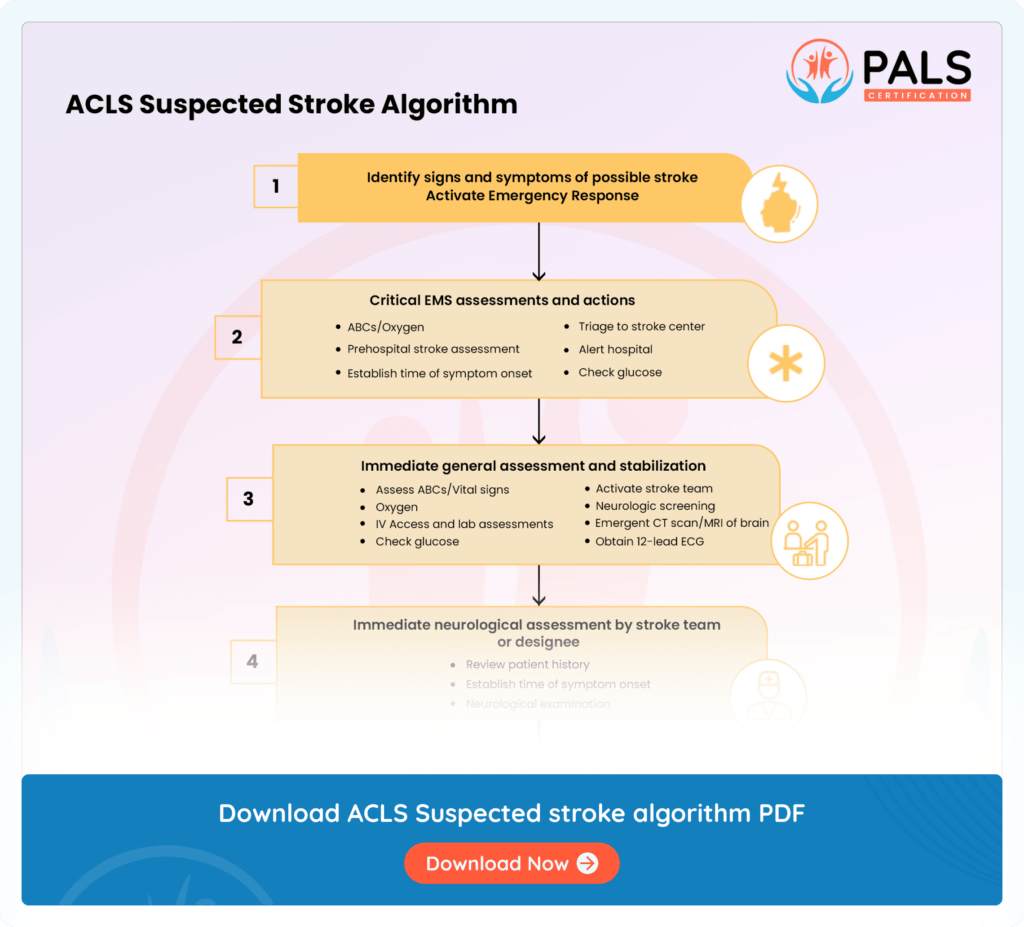
The ACLS Suspected Stroke Algorithm is a systematic approach that efficiently manages patients displaying symptoms indicative of a stroke. By employing the FAST method (face, arms, speech, and time), it identifies the symptoms and triggers the activation of an emergency response. ACLS prioritizes supportive care and emphasizes maintenance of the airway, breathing, circulation, and prompt transportation.
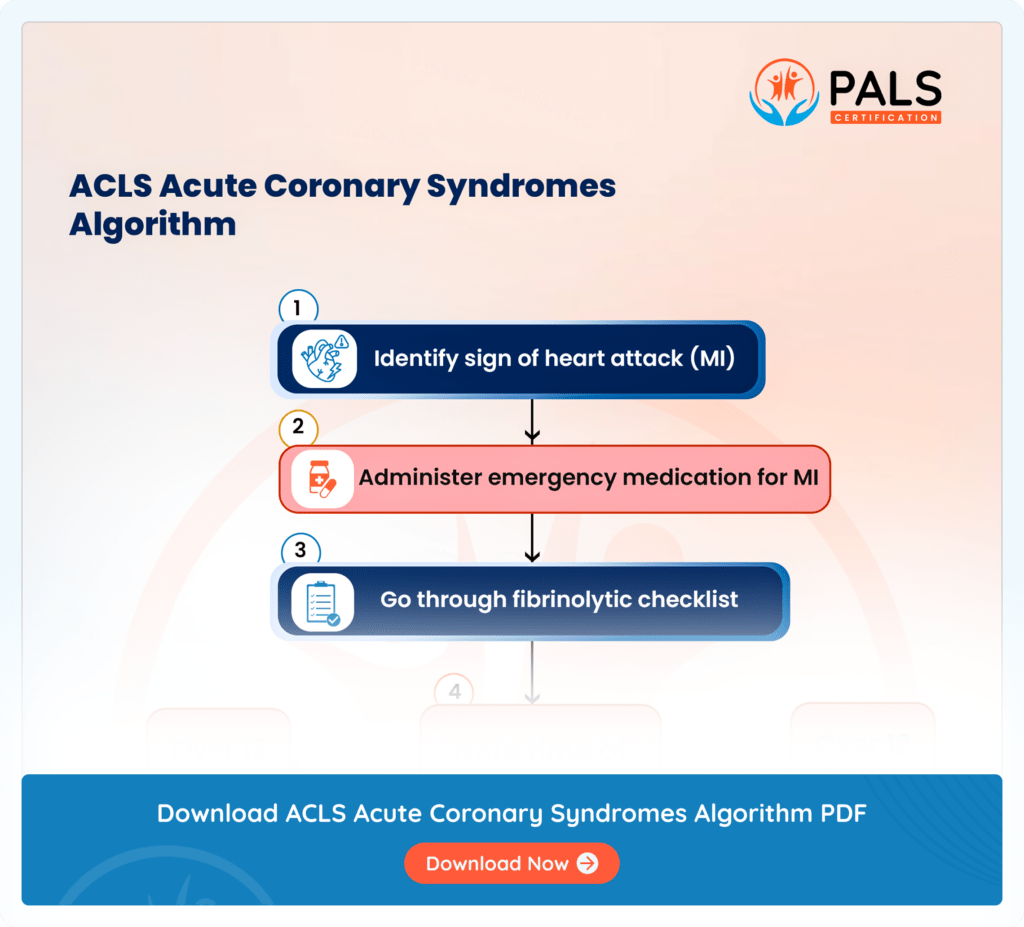
The ACLS Acute Coronary Syndromes Algorithm assists healthcare professionals in evaluating, diagnosing, and treating individuals suspected or diagnosed with acute coronary syndromes.
ACLS algorithms play a key role by equipping healthcare professionals with a systematic framework to navigate critical emergencies such as cardiac arrest. These are meticulously crafted algorithms that enable medical teams to swiftly evaluate circumstances and execute appropriate interventions to save lives.
By adhering to ACLS algorithms, healthcare providers can administer treatments like CPR and defibrillation in a timely and sequential manner and thus increase the likelihood of successful outcomes in cardiac emergencies. Therefore, ACLS algorithms serve as indispensable aids that encourage effective collaboration among medical practitioners and facilitate optimal care delivery during critical clinical scenarios.